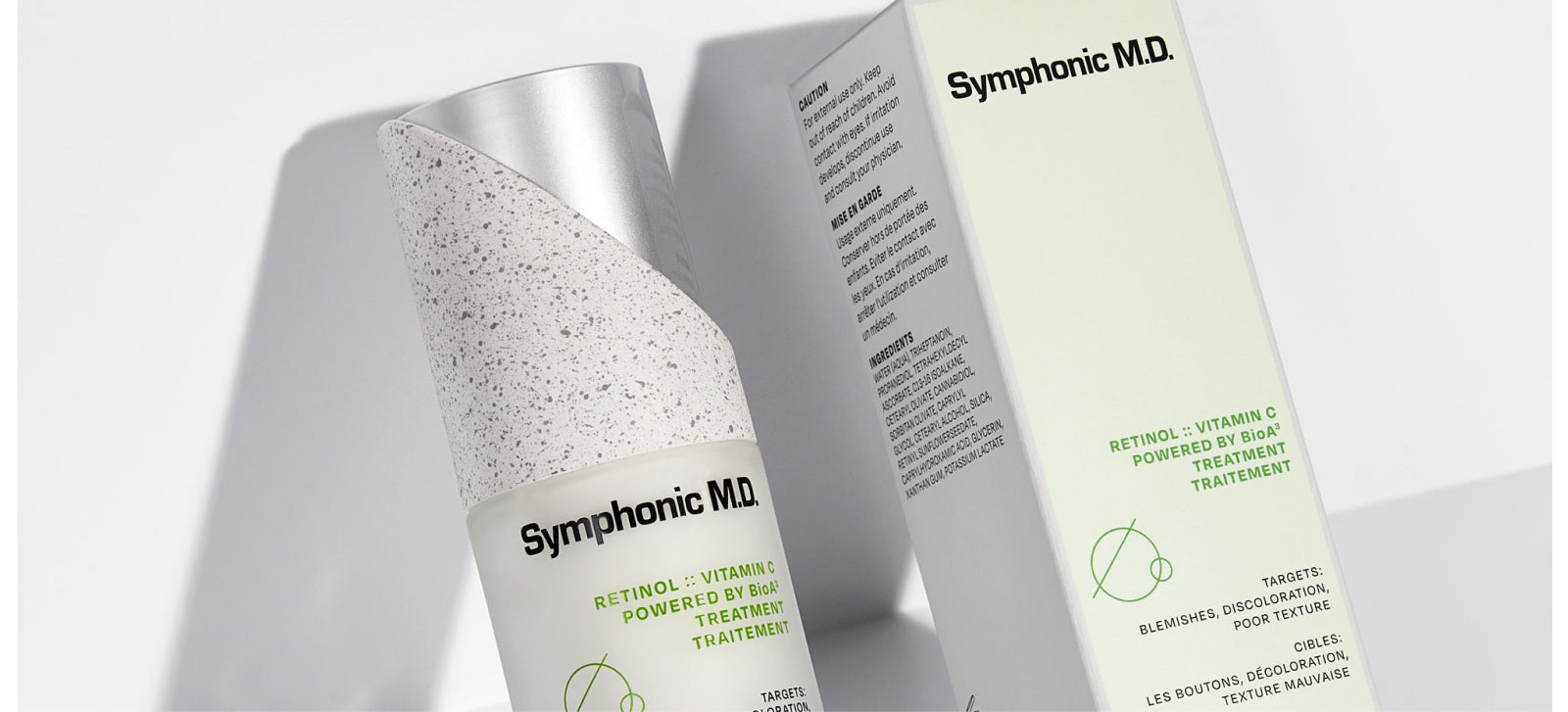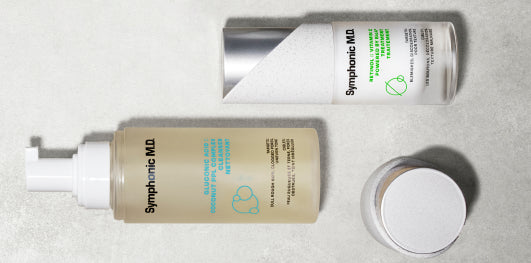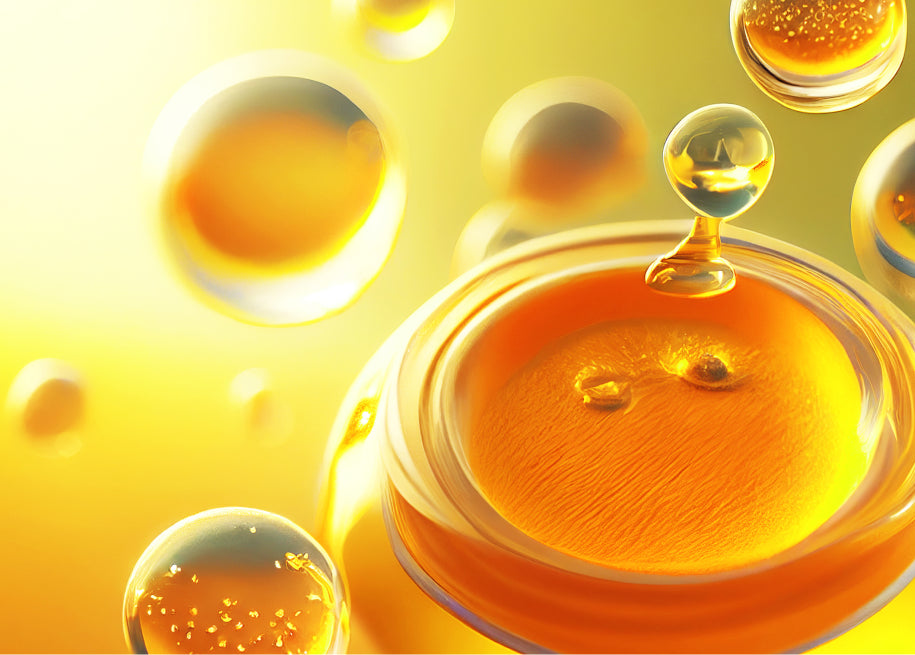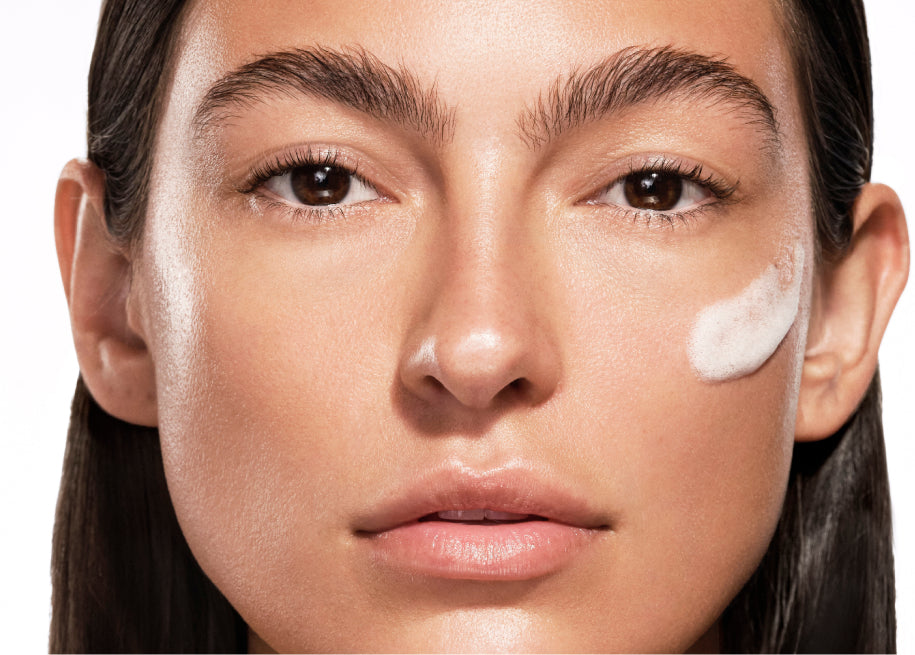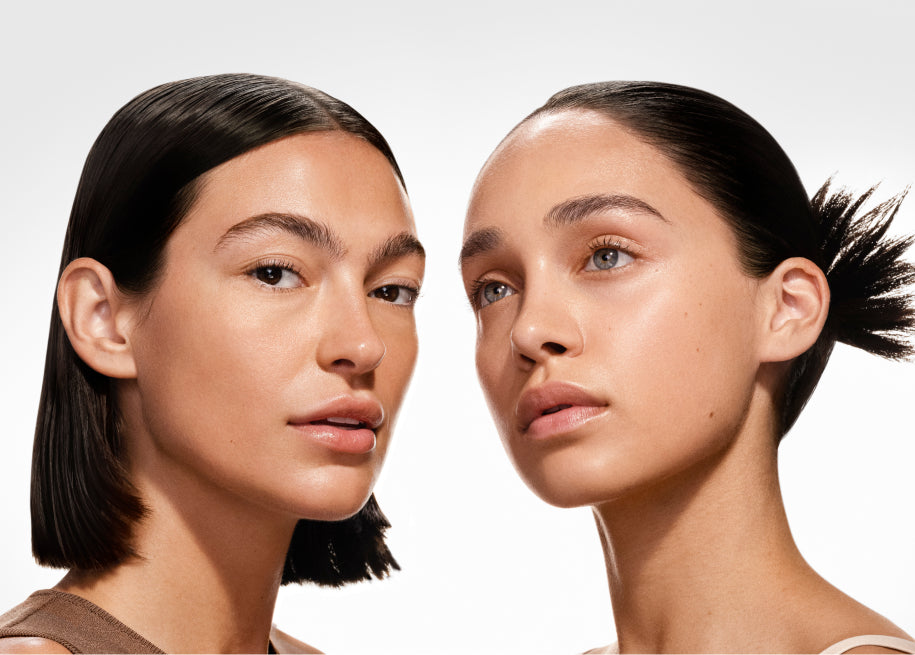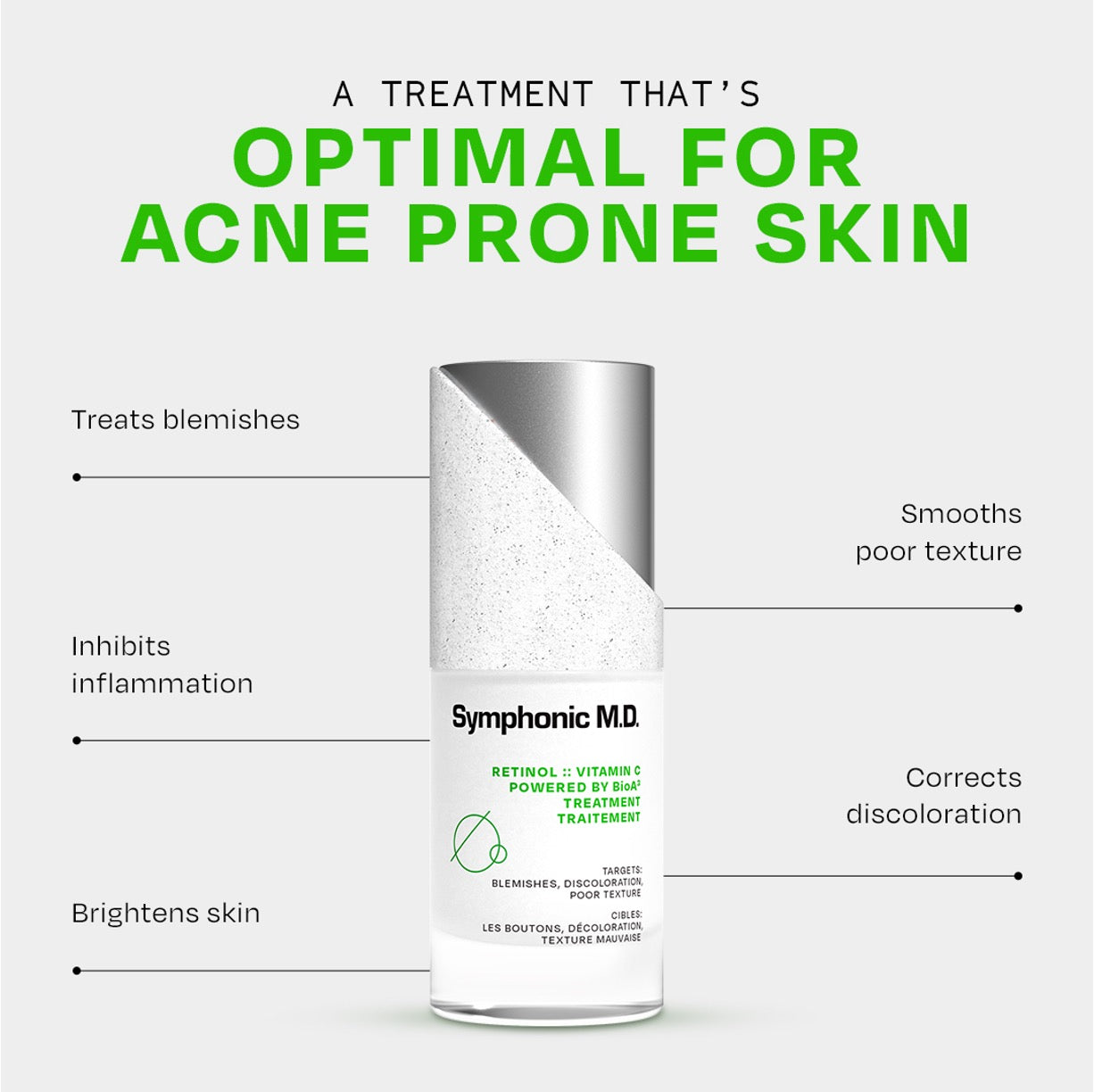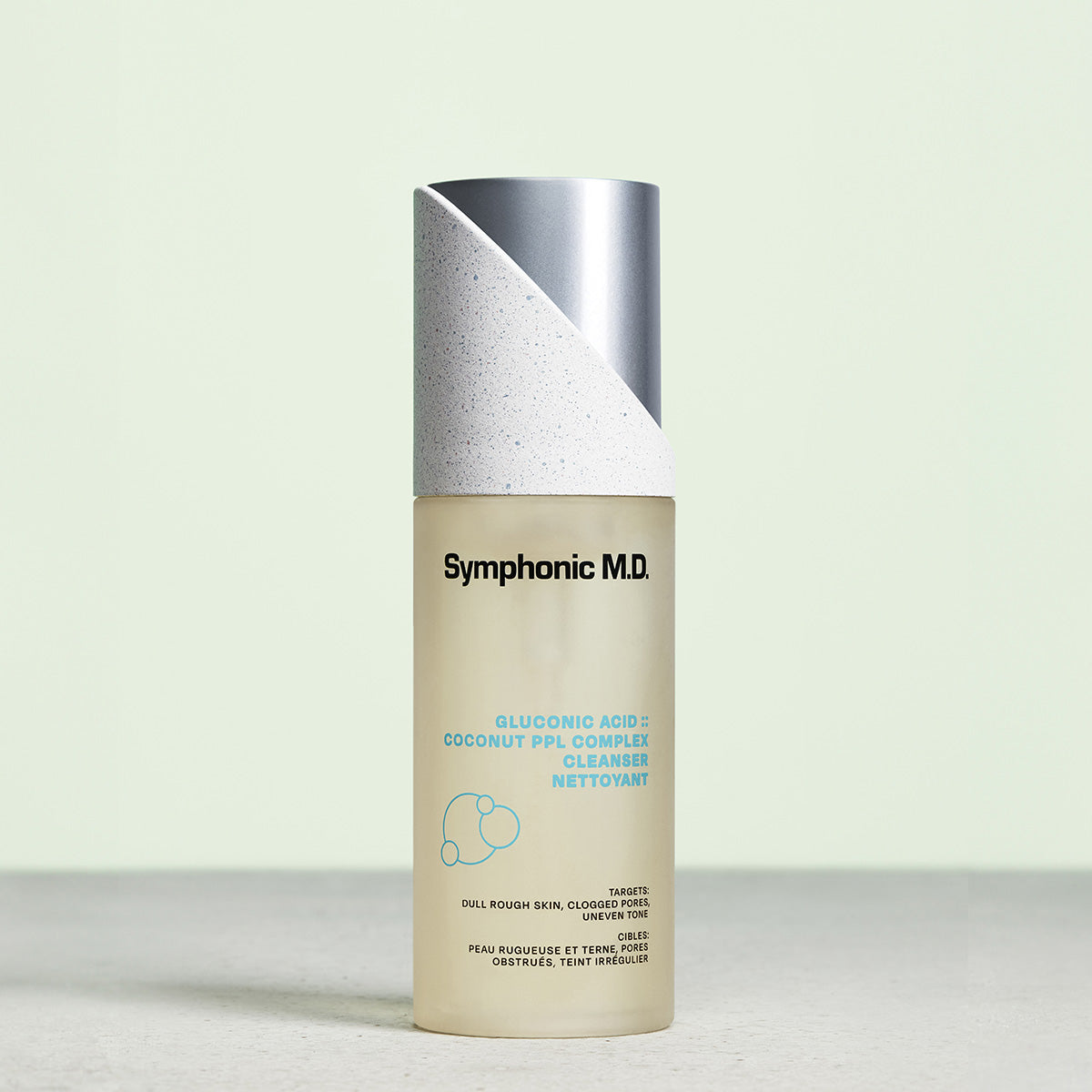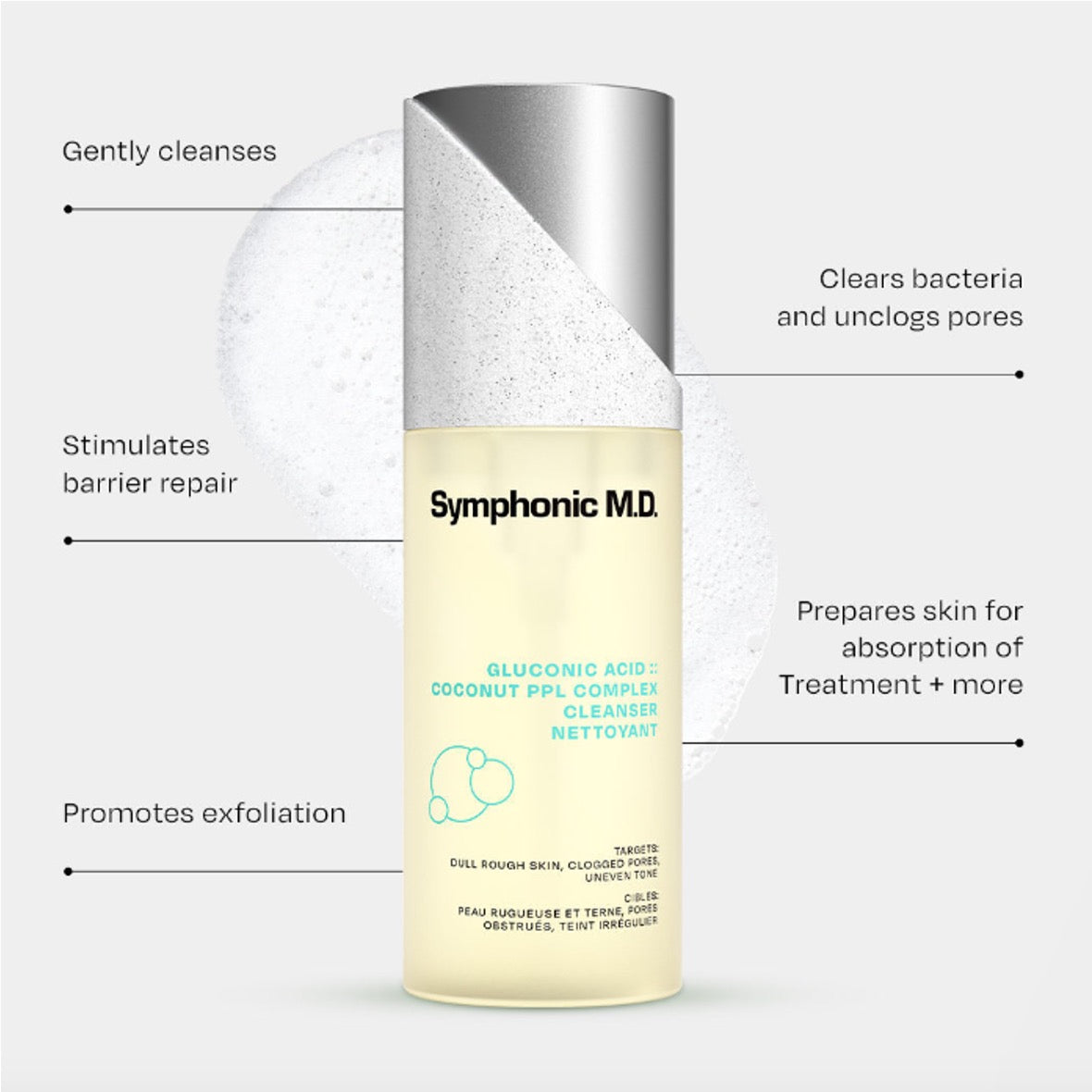As well as being an effective remedy for breakouts, it can prevent them from happening in the first place. Plus, you benefit from its many other skin-enhancing qualities too, making retinol for acne the ideal choice.
What is acne?
Acne is the most common skin condition in the US, affecting almost 50 million Americans a year. These uncomfortable breakouts usually appear on the face, causing distress and embarrassment for sufferers. Some people also have acne on their neck, shoulders, chest, and back.
This widespread condition results from hair follicles becoming blocked with dead skin cells and a naturally-occurring oil called sebum. This causes lesions, such as spots and pimples, to appear on or underneath the skin’s surface.
Types of acne
The symptoms of acne differ from person to person. They can show up as:
- whiteheads – clogged pores beneath the skin that appear as a white bump
- blackheads – blocked follicles on the skin’s surface that look black because the air discolors the sebum
- papules – inflamed and often tender spots that look like small, pink bumps
- pustules or pimples – papules topped with white or yellow pus
- nodules – solid, large, and painful lesions deep under the skin
- cystic acne (otherwise known as severe nodular acne) – painful, pus-filled lesions deep in the skin that may be infected
What is retinol?
Retinol is a type of vitamin A which falls under the retinoid family. It plays a vital role in skin health, and is often added to skincare products to give the body an extra supply.
When applied to the skin, it converts into retinoic acid, which is when it becomes ‘active’ and works its magic. It does this by increasing collagen and elastin production and accelerating cell turnover, resulting in a smoother, younger-looking complexion.
What’s the difference between a retinoid and retinol?
Technically, there isn't a difference between retinoids and retinol. Retinoid is simply the umbrella term for the family of vitamin A molecules retinol belongs to.
Retinol is available over-the-counter in oils, serums, gels, and creams. Stronger retinoids, such as tretinoin and tazarotene, however, are only available via prescription as they present more risks and side-effects. They can be applied topically, or taken in pill form.
It does this by increasing collagen and elastin production and accelerating cell turnover, resulting in a smoother, younger-looking complexion.
Is retinol good for acne?
It’s scientifically proven that retinoids are effective at treating acne. One study about acne, for example, demonstrated that retinoids reduce sebum production, and bring about other effects that control acne.
Another study about retinoids and acne indicated that topical retinoids are beneficial for treating both non-inflammatory and inflammatory acne.
Let's take a look at how retinol specifically tackles this stubborn problem.
Accelerates cell turnover
Retinol increases cell turnover – producing new skin cells at a more rapid rate, and shedding the dead skin cells you no longer need. This stops them from building up and mixing with sebum in your hair follicles. It also helps you get rid of existing whiteheads or blackheads.
Unclogs pores
When your skin cells shed, dirt and oil is removed from your pores at the same time. This helps them remain clear, and reduces the likelihood of a breakout.
Reduces inflammation
Retinol also has anti-inflammatory properties, which means it can calm the redness and inflammation associated with acne.
Regulates oil production
Importantly, retinol can regulate sebum production, preventing excessive oil from being stored in your pores and causing a breakout.
Prevents microcomedone formation
Microcomedones are the precursor to acne lesions, and retinol is effective at stopping their production – which in turn prevents more severe spots from forming.
Improves the effectiveness of other treatments
Retinol works well with brightening agents, such as vitamin C or niacinamide. Used together, they can reduce hyperpigmentation and give you a more even skin tone. Try our Retinol :: Vitamin C Powered by BioA3 Treatment which delivers both retinol and vitamin C in one easy step.
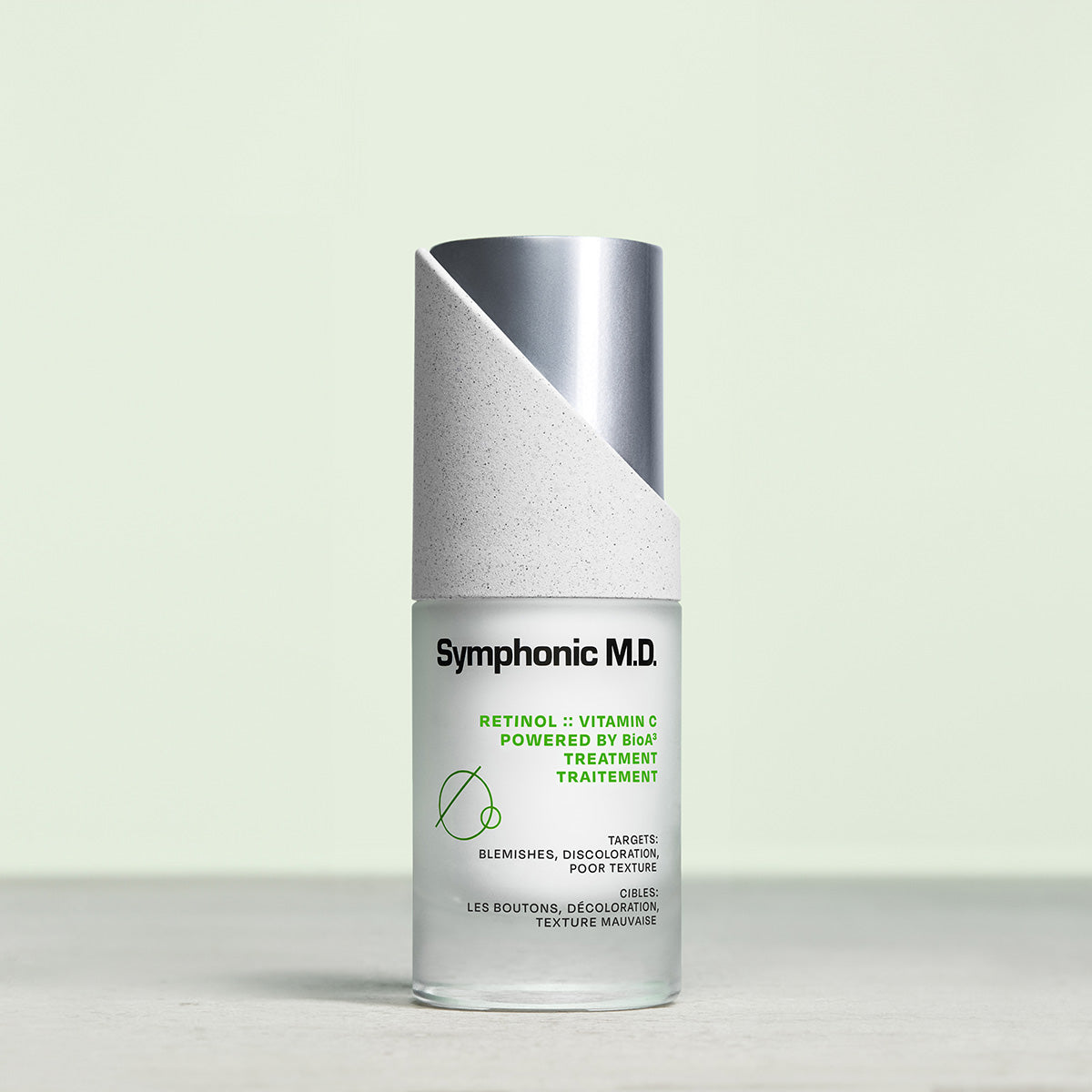
Retinol :: Vitamin C
This anti-inflammatory serum powered by BioA3 targets blemishes, tone, and texture — helping to clear bacteria and smooth skin without clogging pores.
Some people believe that combining retinol with other, natural exfoliants such as benzoyl peroxide or salicylic acid can make them even more effective. However, you should approach this with caution and begin by using retinol at night, and the other ingredients in the morning.
The other benefits of retinol
As well as fighting acne, retinol is a powerful anti-aging ingredient. By enhancing collagen and elastic production, fine lines and wrinkles are reduced and skin feels plumper.
Its cell-rejuvenating properties can also help smooth rough and textured skin, and give it a radiant glow. Plus it can fade age spots, scars, and hyperpigmentation by increasing melanin, which is responsible for skin color.

Potential side effects of using retinol for acne
You may experience some side effects when you first use retinol, especially if your skin isn’t used to retinoids. But because retinol is a mild retinoid, they're unlikely to be severe. Some people experience dry or scaly skin, short-term breakouts, itching, and redness. A few people who are particularly sensitive to retinol could experience stinging, soreness, and flaking.
However, these risks can be managed by using retinol carefully, so always follow the guidelines. If you have very sensitive skin, or you have any other concerns, speak to a dermatologist before you begin using it.
How to use retinol for acne
Retinol comes in various forms, including serums, oils, creams, and gels – and even retinol-infused moisturizers. However, keep in mind that retinol, no matter the form you choose, can cause a reaction if your skin isn’t already tolerant to retinoids and it’s important to incorporate it gradually.
Because most products containing retinol can make your skin more sensitive to the sun, it is generally advised to apply it in the evenings. If you’d like to reap the benefits of retinol both in the morning and evening, try our Retinol :: Vitamin C Powered by BioA3 Treatment which has been clinically proven to not cause irritation - even for the most sensitive skin types - and best of all, it can be applied both morning and night.
So, select the type that fits easily into your skincare routine, and remember - no matter which form of retinol you decide on, always make sure to use sunscreen during the day.
Take a look at our guide to retinol for beginners for more information, and speak to a dermatologist if you have any questions or concerns.
Incorporating retinol into your nightly routine
Apply a pea-sized amount of your retinol product to a clean, dry face. Use it under your moisturizer, and before any other heavy creams. Begin by using it twice a week for the first two weeks, then alternate days for the following two weeks, then daily.
If you have sensitive skin, you could try a low-strength serum, or a retinol-infused moisturizer such as our Retinol :: Vitamin C Powered by BioA3 Treatment. One of the most notable advantages to using our moisturizer is that you don’t need to gradually incorporate it into your skincare routine, it’s safe to use twice a day from the get go.
This anti-inflammatory serum powered by BioA3 targets blemishes, tone, and texture — helping to clear bacteria and smooth skin without clogging pores.

Retinol :: Vitamin C
Skincare ingredients to avoid when using retinol
Retinol is an active molecule, and as such, you should steer clear of certain other ingredients to avoid a reaction, especially if your skin is sensitive.
If you have sensitive skin, avoid AHAs and BHAs like lactic acid, salicylic acid and glycolic acid, as they’re also exfoliants, and the combination can cause irritation. As already mentioned, if you do want to combine them, use retinol at night and the other product in the morning.
Benzoyl peroxide should also be avoided as it can destabilize retinoids and make them less effective, as well as increase skin sensitivity.
What dosage works best for treating acne?
Retinol products – including creams, serums, oil, and gels – come in various strengths, usually between 0.025% and 0.3% retinol.
Begin with a lower concentration (especially if your skin is sensitive), and when you’re satisfied that your skin has become tolerant and it’s not reacting badly, you can slowly increase the strength.
If your acne is severe, you may need a relatively high concentration to remove the scars and prevent further breakouts, so continue increasing the strength over time.
How long retinol takes to work will vary depending on your skin type and the severity of your acne, but it usually takes between one to three months.
If you have sensitive skin, avoid AHAs and BHAs like lactic acid, salicylic acid and glycolic acid, as they’re also exfoliants, and the combination can cause irritation.
Does retinol work for every type of acne?
Retinol can treat most breakouts, but if you know which particular type of acne you’re suffering from, you can treat it more effectively.
Best retinol for hormonal acne
If you’re suffering from hormonal acne, topical retinoids can help alleviate the symptoms, although they don’t tackle the root cause - the hormonal imbalance causing the acne. Depending on how severe your acne is, you could try an over-the-counter retinol such as a cream or serum, or a prescription-strength retinoid such as tretinoin.
Talk to a medical professional about possible treatments and medications that could help you manage hormonal acne and prevent further outbreaks.
Best retinol for inflammatory acne
Inflammatory acne typically results in large papules and pustules forming on the face, and it can be very distressing to deal with.
The good news is that topical retinol products, such as creams and serums, unblock your pores to help manage outbreaks – and they’re anti-inflammatory too. So they can significantly reduce swelling and redness, making your skin appear much smoother.
Best retinol for comedonal acne
Blackheads and whiteheads – otherwise known as comedonal acne – usually respond well to retinol. Not only does it reduce the appearance of existing comedones, it can prevent them from forming in the first place.
Consider trying a cream, serum, or oil first. However, if your spots are particularly stubborn, talk to a dermatologist who may be able to prescribe a prescription-strength retinoid.

How to choose the right retinol product
Regardless of your skin type, minimize potential irritation by starting with a mild retinol and building the strength up gradually – which might be necessary if your acne is resistant to lower-strength formulations. If your skin is already used to retinoids, you can safely begin with a medium-strength product.
Whether you choose a cream, serum, gel, or oil is down to individual preference, but stick to something you can slot into your evening skincare routine.
If your skin is sensitive, you could choose a moisturizer which combines retinol with a nourishing and soothing ingredient like vitamin C – such as our Retinol :: Vitamin C Powered by BioA3 Treatment.
Talk to a dermatologist if you have any doubts or concerns and they’ll advise you on the most suitable products for your particular skin.
New to retinol and don’t know where to start? Learn everything you need to know about the strengths, dosages, benefits and more in our detailed guide Retinol for Beginners: What is a Good Retinol to Start With?
How long does it take for retinol to clear acne?
Although retinol is an effective acne treatment, the result won’t appear overnight. It can take several weeks to a few months to see noticeable changes, so be patient while you allow it to take effect, and keep up the routine.
If your acne appears to get worse before it gets better, don’t worry as it’s completely normal. This is what’s known as ‘purging’, and it’s your skin’s way of clearing out clogged pores, so it’s actually a good thing. Plus it’s only temporary.
Should you stop using retinol if acne improves?
You might be tempted to stop using retinol when your acne appears to be under control. But it's important to remember that the retinol is preventing further outbreaks from happening, so stick with it. As we’ve already mentioned, retinol has many other benefits too – such as anti-aging and skin smoothing properties – so your skin will thank you for continuing to use it.
Although retinol is an effective acne treatment, the result won’t appear overnight. It can take several weeks to a few months to see noticeable changes.
Can retinoids help with acne scars?
As well as treating breakouts, retinoids can significantly reduce acne scars and the associated discoloration. They do this through a combination of promoting collagen production, bringing new skin cells to the surface, inhibiting melanin (which is responsible for changing the skin’s color), and smoothing the skin’s surface.
Battling with acne scarring? Learn how retinol can reduce the appearance of acne scars and give you a smoother, more radiant complexion in our comprehensive guide Does Retinol Help with Acne Scars? How to Use Retinol Cream for Acne Scars
The bottom line
Thanks to its cell renewal, smoothing, and anti-inflammatory properties, retinol is a very effective treatment for most types of acne – with comedonal and inflammatory acne responding particularly well. Be patient while you wait for the full effects to appear, and don’t be alarmed by a brief period of purging, which can temporarily make the problem appear worse.
If you have sensitive skin, or you'd like to combine your acne treatment with a moisturizer, try our Retinol :: Vitamin C Powered by BioA3 Treatment.
If you’re in any doubt, talk to a doctor or dermatologist who can suggest a specific retinoid treatment for your unique acne issues.
